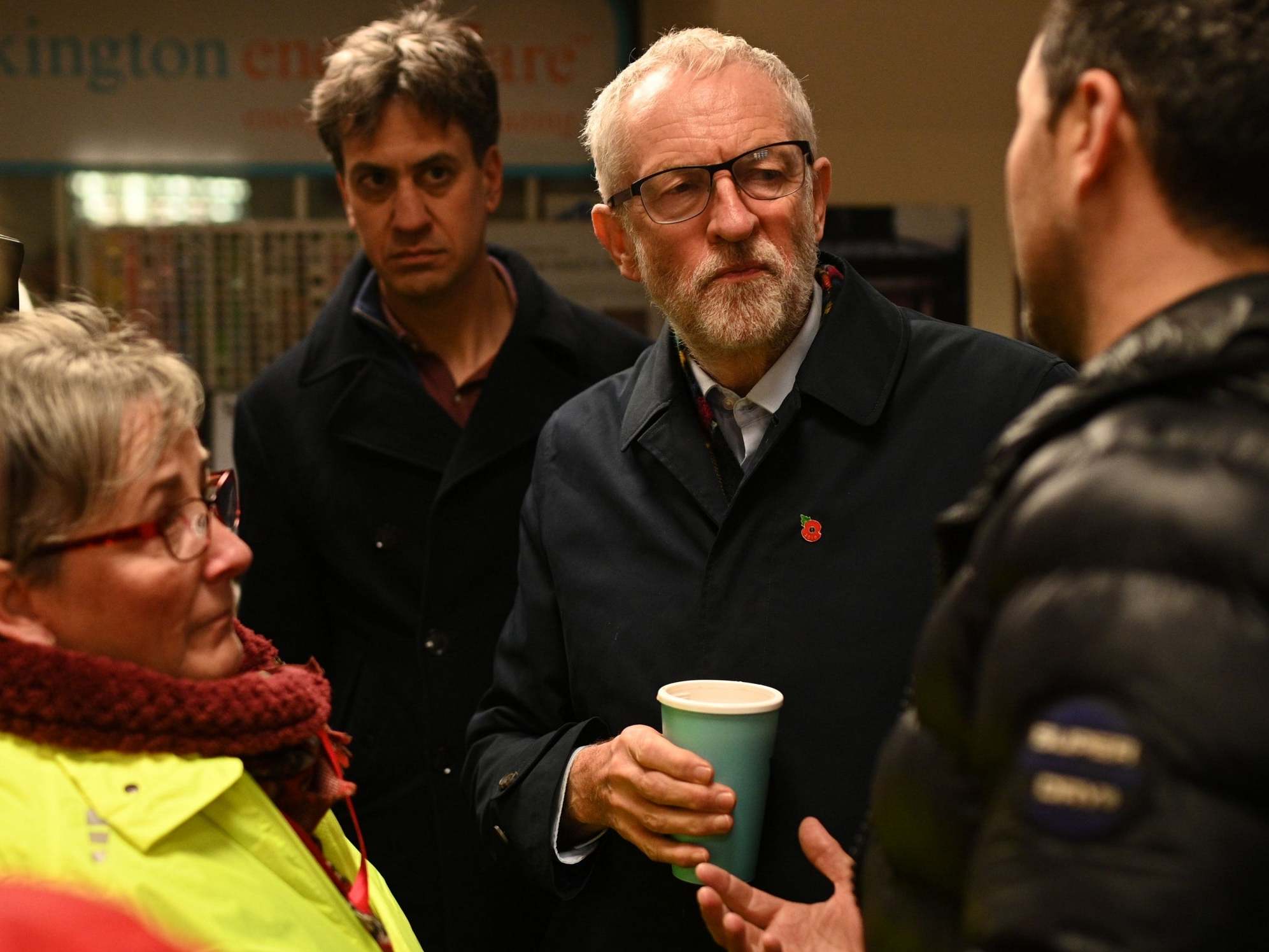Ed Miliband’s inquiry into Labour’s defeat will tell us only what we already know
The former leader will do his best, but he and the commission cannot undertake the task of properly analysing secrets of the election results, writes Sean O'Grady


Like losing general elections, the Labour Party has a long tradition of launching inquiries into losing general elections. The latest one will feature former leader Ed Miliband, who knows a thing or two himself about losing. The national share of the vote he achieved at the 2015 election was, as many Corbyn supporters have pointed out, lower than 2019 and far lower than 2017. Above all, the 2015 campaign was the one where Labour lost Scotland – down from 41 out of 59 seats to just one. The whereabouts of the infamous “Edstone”, the giant slab of stone with Labour’s vague commitments for the 2015 campaign remain unknown. Miliband hasn’t even that literal monument to failure to show for his ill-starred reign.
The commission will be led by Lucy Powell, still an MP, who helped to run the 2015 campaign and OK-ed a memorably cringeworthy encounter between Miliband and Russell Brand. Was that really an error? “Hell yes” was the consensus. Failure is familiar to the class of 2015.
Miliband and his colleagues will be interviewing scores of ousted MPs and disappointed candidates in target seats, organisers and regional and national officials.
Such inquiries are usually useful only for telling the party what it already knows. Even now, these ex-MPs and candidates are voicing concerns about the party’s organisation and the distribution of its resources from seat to seat. There will be useful insights into how Labour’s still mass membership can be best deployed.
The party knows that is strong in certain areas of social media, such as Twitter, but not much in others, such as Facebook. As far back as 1955 (another loss, in the Attlee era) the party’s machinery was criticised by an inquiry headed by future leader Harold Wilson – “at the penny-farthing stage in a jet propulsion era”. It sounds quaint now, but it has been echoed after every flop, down to Tom Watson’s inquiry in 2015 (which was not followed up by a similar exercise after 2017, even though Labour, strictly speaking, lost that election too).
What Labour party inquiries never do is settle the issues of policy and leadership – because they cannot. The members of the inquiry will be able to go no further than to voice some obvious platitudes about the wicked media, the distortions of the electoral system, the “Corbyn” issue, antisemitism, an overlong manifesto and, of course, Brexit. They will not be able, nor will be asked to, to select a new leadership team or policy platform. The current remit to “map out a route to power” is impossible to achieve, and is not seriously meant. It may also be light on rigorous psephological research.
The time-honoured method by which Labour determines such matters after successive defeats is via a vicious civil war. It happened after 1931, 1951, 1959, 1970, 1979, and 2015, to varying degrees. It seems to have already broken out again.
The issues are often similar: economic policy and the size of the state, levels of taxation and borrowing; nationalisation; trade union power; Europe; defence and nuclear weapons; and the role of the membership vs MPs and the leader.
Even then, matters rarely become resolved until sufficient multiple humiliations eventually result in a moment of capitulation to the demands of the electorate. At that stage, a strong modernising leader can gain the freedom to do whatever it takes to take the party back to government – Wilson in 1964, Tony Blair in 1997. This process, though, can take a long time, as after 1979 when the Tories won four elections on the trot, and clocked up 18 years in power, before Labour ditched its ideological baggage (or principles).
Miliband will do his best, and can be trusted to deal with the antisemitism issue with proper care and authority. He can also ask his own predecessors, Neil Kinnock, Blair and Gordon Brown, for the benefit of their wisdom (some outspoken advice has already been forthcoming). He and the commission cannot, though, undertake the task of properly and objectively analysing secrets of the election results – that will have to await the British Election Study by Sir John Curtice and his collaborators.
No one should expect Powell, Miliband and the commission to rebuild Labour. The party, despite Jeremy Corbyn’s urging, is not in the mood to reflect. The fighting will continue.
Join our commenting forum
Join thought-provoking conversations, follow other Independent readers and see their replies
Comments